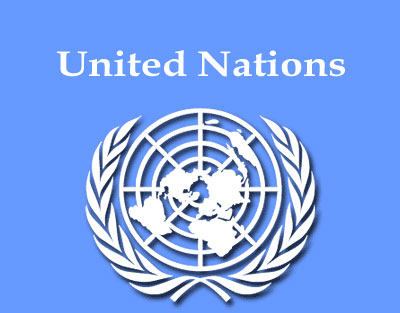Darfur conflict becomes 'all against all' - UN says
 New York - The Sudanese army and rebel groups in Sudan's Darfur region have turned guns against each other and are purging members of their own groups some two months after signing a ceasefire, a UN official said Monday. All warring parties have killed civilians, said Rodolphe Adada, the representative of the United Nations-African Union peacekeeping mission in troubled Darfur.
New York - The Sudanese army and rebel groups in Sudan's Darfur region have turned guns against each other and are purging members of their own groups some two months after signing a ceasefire, a UN official said Monday. All warring parties have killed civilians, said Rodolphe Adada, the representative of the United Nations-African Union peacekeeping mission in troubled Darfur.
"The armed movements fight amongst each another, or violently purge their own members," Adada told the UN Security Council in a review session on the situation in Darfur.
"Darfur today is a conflict of all against all," he said, adding that endemic banditry and the breakdown of law and order dominates the situation in Darfur. He described the situation as a low-intensity conflict in which civilians are the main victims.
The ongoing killings provoked a high level of protest in the US on Monday, with actress Mia Farrow, a Goodwill Ambassador for the UN, announcing a hunger strike and prayers for refugees as well as the culprits.
In Washington, police arrested five members of the US Congress for stepping over police lines at a protest outside the Sudanese embassy.
About 2,000 people were killed in January from January, 2008, when the joint UN-AU peacekeeping mission was deployed in Darfur, to March, 2009. Adada said an average of 130 to 150 people have been killed each month as a result of the conflict.
The UN and relief organizations estimated that more than 300,000 Darfurians have died since the ethnic conflict erupted in 2003 in Darfur and 2.5 million others have been displaced by the fighting.
The Sudanese government backs Arab militias fighting African rebel groups in Darfur, the largest of which is the Justice and Equality Movement.
Adada said political talks to try to resolve the conflict have been frozen "at least until the implications of the International Criminal Court (ICC) arrest warrant have become fully clear."
The ICC at The Hague has issued a warrant to arrest Sudanese President Omar al-Bashir, charging him with committing war crimes and crimes against humanity. However, al-Bashir has visited freely several Arab countries, which like Sudan, are not parties to the ICC convention and considered themselves under no obligation to arrest the Sudanese leader.
After the ICC issued the arrest warrant, Khartoum halted peace talks and expelled 13 major international relief organizations responsible for providing humanitarian aid to half of Darfurians in need.
"The people of Darfur a crying out for local peace," Adada said. "In the absence of an overall agreement, they are eager for local peace agreements to proceed."
Adada said the UN-AU mission in Darfur plays a vital role on the ground, but progress made so far has not been recognized by the media. (dpa)